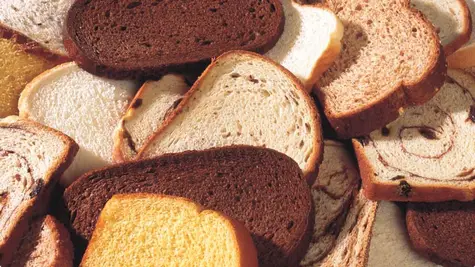Contributing Writer for Wake Up World
Gluten-free diets are sweeping the nation as more people become aware of the dangers of the problematic protein found in wheat, rye and barley. While their intentions may be for the best, many are falling into the trap of “junk gluten-free” — foods high in sugar, starch, additives and genetically modified (GM) ingredients. Concerned health advocates believe that in the quest to eliminate gluten from the diet, many individuals are, in actuality, exchanging one problematic food for another.
The role GMOs play in food intolerance
Gluten sensitivity is certainly on the rise, and GM food is firmly placed as one of the main aggravators of the condition.
[pro_ad_display_adzone id=”110028″]
As reported in the article “Incidence of gluten sensitivity skyrocketing in the U.S. – Are GMOs to blame?“:
“Jeffrey Smith’s documentary Genetic roulette: The gamble of our lives reveals how GMOs destroy the digestive tract of mammals. Smith believes that the Bt toxin found in genetically modified food actually creates holes in the gut lining, leading to leaky gut syndrome. This may explain why gluten intolerance has become prevalent since GMOs were introduced into the food supply.”
What exactly is the leaky gut syndrome and why is it a problem? Basically, when the microvilli in the small intestine become damaged by an offending food, such as GM Bt corn, the gut wall becomes overly permeable and molecules of partially digested food leach into the bloodstream — thereby triggering inflammation and a vicious cycle of autoimmune symptoms paired with digestive distress. In an unfortunate twist of irony, many gluten-free products rely heavily on GM corn as a substitute for wheat, rye and barley, which further perpetuates the damage in the gut.
GM organisms (GMOs) aren’t the only culprit. Many processed gluten-free products are also packed with starches (from potatoes and arrowroot) and polysaccharide binders (such as xanthan and guar gum). According to Dr. Campbell-McBride, creator of the Gut and Psychology Syndrome diet (GAPS), polysaccharide carbohydrates (including sugar and starch) damage the intestinal wall and promote leaky gut syndrome. Add to this problem that xanthan gum is often derived from corn, soy — two top GM crops – and wheat, and processed gluten-free products aren’t quite so appealing to the health conscious consumer.
[For more information, check out the article: Rid the Body of Dangerous Bt-Toxin Found in Genetically Modified Food with These Tips]
Another danger concerns rice. Sarka-Jonae Miller notes in the article “Bad news for Celiacs: Arsenic in rice may make it even harder to eat gluten-free”:
“Consumer Reports discovered both organic arsenic and inorganic arsenic in the rice and rice products earlier in 2012. Inorganic arsenic is a known carcinogen. Organic arsenic is considered to be less toxic, but not harmless. The FDA then performed its own study. The agency is under pressure from organizations and groups that want to know what levels of arsenic are dangerous. This is particularly important for groups of people with Celiac disease and who follow a gluten-free diet as they eat significantly more rice than the average person.”
Simple solutions
One way to avoid the dangers of GMOs and heavy metals in our food supply is to stay up-to-date on the latest news concerning toxins by visiting HeavyMetals.NaturalNews.com and GMOs.NaturalNews.com.
[Further information is available on the heavy metals and GMO pages on Wake Up World]
We can also focus on alternative organic grains, such as amaranth, millet, buckwheat and quinoa, to reduce risk. Steering clear of conventional corn and soy as well as gum binders is another protective step. Instead of xanthan and guar gum, look for products that use flaxseed, chia or eggs instead. Ultimately, an organic, whole-food diet with limited processed food — gluten-free or otherwise — is the ideal.
Previous articles by Carolanne:
- Vitamin C for Taming Tension, Burning Fat, and Much More
- Fulvic Acid: The Amazing Health Secret you’ve Never Heard About
- Is Mold Making You Sick?
- Hemp – The Ultimate Cash Crop, Health Food and Environmental Savior Rolled Into One
- Slash your Organic Food Bill by Almost 90 Percent with This One Simple Method
- Chemtrails: Learn How to Protect Yourself From These Treacherous Poisons
- Top 10 Food Frauds: Formaldehyde, Plastic, Melamine & Caustic Soda Found in Common Foods
- Autistic Boy With Higher IQ Than Einstein Discovers Gift After Removal From State-Run Therapy
- Enhance Spiritual, Mental and Physical Well-being with a Pineal Gland Detox
- Enterprising Community Aims for Total Food Self-Sufficiency with Free Edible Landscapes
- The Silent Toxin in Food that Provokes Cancer, Diabetes, Multiple Sclerosis and More
- DIY $2 Self-Watering Garden Bed – Grow Produce Easily, Even in the Toughest Drought Conditions
[pro_ad_display_adzone id=”110025″]
Please note: this article first appeared on Natural News.
[pro_ad_display_adzone id=”110027″]







